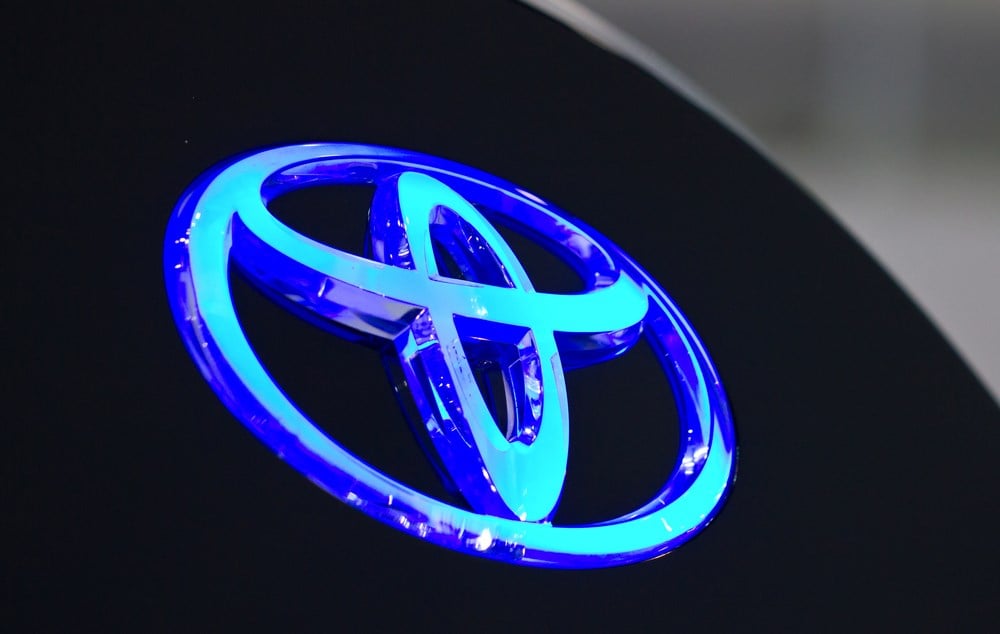Toyota vs Tesla: The Tortoise And The Hare Race Has A New Meaning The fast growing business model at Tesla can present some possible downsides, which can be cushioned by Toyota's steadiness and quiet growth
This story originally appeared on MarketBeat
 The automotive industry tends to be a very saturated place for consumers, with endless choices of brands and models; spoiled for choice, they can balance their selection between their needs. Today, investors face a similar dynamic when choosing the right automotive stock to buy potentially. However, they are more spoiled for choice.
The automotive industry tends to be a very saturated place for consumers, with endless choices of brands and models; spoiled for choice, they can balance their selection between their needs. Today, investors face a similar dynamic when choosing the right automotive stock to buy potentially. However, they are more spoiled for choice.
There are two names, however, that stand out both to the consumer and to Wall Street, providing selections at both extremes of the spectrum. On one end, a roller coaster of a company called Tesla (NASDAQ: TSLA) offers the excitement of a new company going through its growth spur.
On the other corner comes a name known for durability and quality that beats any comparable name by miles. Toyota Motor (NYSE: TM) is a steady and reliable product in the industry.
These qualities are also reflected in the stock's behavior. They are even more vivid in the financial drivers of the company, giving investors a chance at exposure to the sector with the balance of growth and safety that every portfolio dreams of.
Tale of Two Extremes
Beginning with the academic definition of a stock's behavior, the 'beta,' investors can start to set expectations for what a day in their portfolios can look like with these two names.
Beta indicates how much a stock is expected to move compared to a benchmark, typically the S&P 500. In other words, what percentage of moves can a shareholder expect relative to one percentage move in the S&P 500? In the case of Tesla and Toyota, betas are 2.07 and 0.57, respectively.
Putting these metrics in real-life terms, whenever the SPDR S&P 500 ETF Trust (NYSEARCA: SPY) rises by one percent, Tesla is expected to increase by 2.07% on average. For Toyota, this may look like a less exciting advance of 0.57%; investors should remember that this also applies to down moves.
This volatility can be seen visually when comparing the two stocks over twelve months, where Tesla shows more peaks and valleys next to Toyota's smooth sail.
The stock price behavior comes as no surprise when investors consider what is happening behind the scenes at each business.
Balanced Forces in a Portfolio
Toyota stock has outperformed Tesla by 26.2% during the past twelve months; however, the picture looks different over the past five years. Tesla has risen by a stratospheric 1,346%, while Toyota has quietly advanced by 45%.
This is understandable considering that it has been around five years (2018) since the United States FED moved to raise interest rates, pivoting markets into a preference toward reliable earnings and cash flows rather than justifiable though overextended growth.
Now that rates are rising again, and the latest FED minutes show signs of them remaining at these levels, investors seem to be gearing up to balance their portfolio with a bit more Toyota than Tesla. The comprehensive performance gap over the past year is witness to these pivoting flows.
While not as widely covered as Tesla, a few analysts from Jefferies Financial Group (NYSE: JEF) are placing a net 4% upside in the stock from today's prices. On the other hand, Tesla's target prices reflect an opposite trend, as there is a consensus 9.6% downside.
Despite overall expectations for car dealers to suffer during the decline in vehicle prices, alongside a tighter consumer budget, Toyota's business fundamentals are still attracting whatever industry money is left out there.
Optimal Outcome
While investors should not consider dumping their Tesla stock to start buying Toyota, these points serve as the consideration of diversification. While Tesla has been grabbing much attention by discounting prices to compete in the EV niche, Toyota has chosen a quiet path to expansion.
Analysts are projecting a 40.7% jump in Tesla EPS for the next twelve months, which, if achieved, can bring a massive leap in the stock toward previous - or even new - highs.
At the same time, investors are risking placing much weight into realizing these expectations, all the while lithium prices and market saturation affect margins at Tesla.
Any slight miss in these EPS targets may send a significant tantrum into the stock; do you want the high potential rewards of growth? Be willing to accept the risk that comes with it.
Lucky for some, Toyota's humble 15.7% EPS projected growth comes to save the potentially wild swings in Tesla. Output at the Japanese car maker has reached a monthly record in July, quietly outpacing the adverse effects that can be felt in the industry during the current cycle.
Building an adequate balance in Toyota can add a bit of steady growth and low volatility to a vehicle portfolio composed of Tesla; apart from cushioning the potentially massive rally / pullback, investors also receive a decent 2.2% annual dividend yield.










